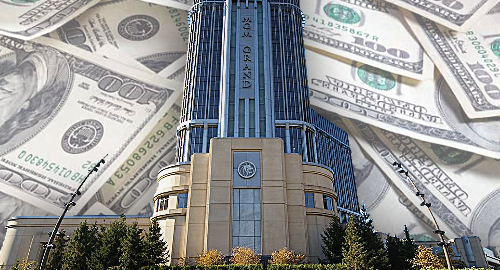 Detroit’s three commercial casinos reported record gaming revenue in 2018, although only two properties beat their personal best numbers.
Detroit’s three commercial casinos reported record gaming revenue in 2018, although only two properties beat their personal best numbers.
On Tuesday, the Michigan Gaming Control Board released its annual gaming revenue figures for 2018, during which Detroit’s three commercial gaming venues generated a combined $1.44b in revenue, $40m higher than 2017’s result and $20m higher than the previous record of $1.42b set in 2011.
Slots accounted for $1.17b (81%) of 2018’s record haul, with the remaining $272m coming from table games. The casinos paid the state $117m in gaming taxes in 2018, while the city of Detroit earned $183m through gaming taxes and development agreement payments.
The three casinos closed out 2018 with revenue of just under $127.5m in December, 9.7% higher than the same month last year. December’s haul was the second-best monthly total this year, behind only the $138.6m the casinos earned in March.
MGM Resorts’ market-leading MGM Grand Detroit earned $619.2m in 2018, beating its previous record of $605m set back in 2012. MotorCity Casino was also in a record-breaking mood, reporting $489.7m in 2018, topping the $480.2m the property earned in 2007.
Greektown, which was recently acquired by a combination of Penn National Gaming and the VICI Properties real estate trust, earned $335.2m in 2018, around $5.5m higher than 2017’s result but well shy of the property’s 2011 high-water mark of $352.8m.
All Michigan casinos, including the numerous tribal casinos located outside the Detroit area, had been expecting to soon enjoy new revenue streams from sports betting and online gambling, thanks to the bills approved by the legislature shortly before Christmas.
However, these hopes were cruelly dashed shortly before New Year’s when outgoing Gov. Rick Snyder vetoed the gambling expansion measures, claiming that he was worried about the impact that widespread online gambling might have on the state’s highly successful online lottery operation. Michigan legislators have vowed to restart these gambling expansion efforts in 2019, but the new revenue streams will now have to wait until 2020 at the earliest.





